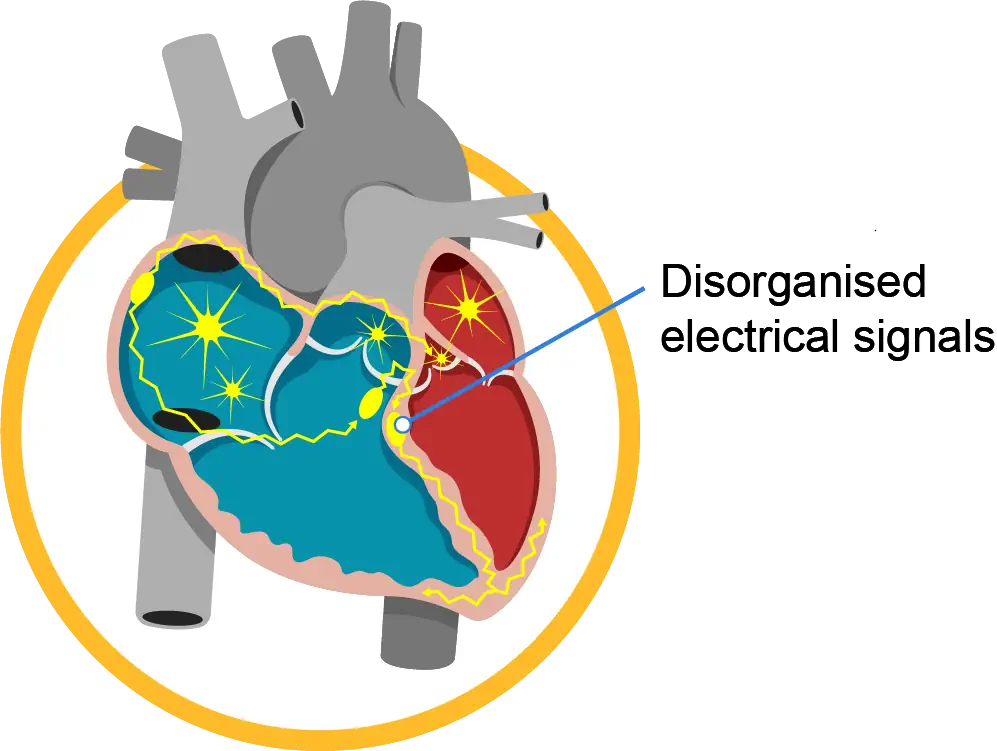
Arrhythmia is a term used to describe an abnormal or irregular heartbeat. While an arrhythmia can occasionally be so brief as to hardly alter the heart's rhythm at all, it could also result in severe disruptions in certain cases.
Types of arrhythmias
The heart does not correctly beat or pump blood in all cases of arrhythmia. This restricts blood flow to other organs, including the brain and lungs, which can result in organ damage and possibly organ failure.
Causes
Signs and symptoms?
Arrhythmias may lead to collapse or sudden cardiac arrest in severe cases.
Risk factors
Diagnosis
Treatment options
The treatment for arrhythmia is determined by the type of arrhythmia. The treatment options include:
Prevention
Visit your nearest Gleneagles Hospital to learn more about our Cardiology Services
References:

Wait a minute